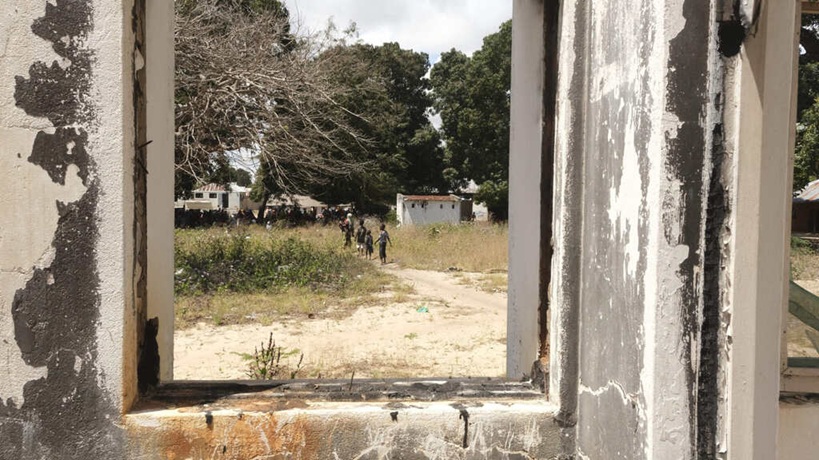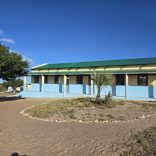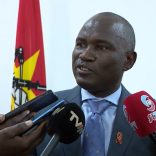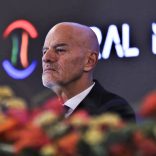Mozambique: Nelson Mandela Award for lawyer murdered in Maputo, with call for investigation
Mozambique: Insurgents getting bolder eight years after first attack – João Feijó

FILE - For illustration purposes only. [File photo: MozNews]
Mozambican analyst João Feijó said on Friday that the rebel groups operating in Cabo Delgado are showing a tendency to grow, as well as an increasing ability to communicate, with almost daily “daring attacks”, eight years after the first major insurgent incursion.
“A scenario similar to the one that existed in 2019, when they were growing,” João Feijó, a researcher at the Observatory of the Rural Environment (OMR), a Mozambican non-governmental organisation, told Lusa, adding that the group is currently showing “a tendency to grow and an ability to communicate, after making almost daily attacks, and communicating these attacks almost simultaneously through the Islamic State agency.”
The major attack on Mocímboa da Praia, located in the north of Cabo Delgado Province, occurred eight years ago.
That district was the first scene of attacks, on 5 October 2017, by the armed groups that carry out incursions in Cabo Delgado. The town of Mocímboa da Praia was even used as rebel headquarters for just over a year, until it was reclaimed in August 2021 by Mozambican and Rwandan government forces.
According to Feijó, the conflict in northern Mozambique had several phases, with the beginning characterised by isolated attacks on villages, in which the groups sought to “avoid major military confrontations” and attacked civilians “to obtain logistics”.
“Then there was a second phase, which coincides with the group’s internationalisation and affiliation to the Islamic State, in which they gained much more fighting capacity. This happened from the end of 2019, when they started filming themselves, driving around in the armoured vehicles they had stolen from the [Mozambican] troops, and then culminated in 2020 and 2021 with attacks on four or five district headquarters, including Palma,” explained the analyst, who has published on the situation on the ground.
He also describes that the third period began with the arrival of Rwandan troops in the country in 2021, which culminated in the recovery of north-eastern Cabo Delgado, “pushing” the insurgency southwards, which also spread and made some incursions into districts in the region, as well as “threatening attempts” in the provinces of Niassa and Nampula.
“And now this new fourth phase, a new phase in which they are once again daring and attacking close to where the people are in the north-east, with a greater intensification of attacks, which have been almost daily, at a time of tiredness and weariness,” he said.
The researcher pointed to the departure of troops from SAMIM, a series of missions by eight southern African countries, as one of the probable causes of the new upsurge in attacks, which has provided an opportunity for the rebels to reorganise themselves in Macomia, “building a support base from where they then make incursions into neighbouring districts”.
He added that the recent tensions in the country over the election results, called by former presidential candidate Venâncio Mondlane, had increased the population’s sense of misery and illegitimacy in relation to the government, constituting “fertile” ground for the reorganisation and exploitation of social discontent, because the rebels “feed on chaos” and, through this climate, find it easier to reorganise a social support base.
In circumstances of “great precariousness”, the researcher pointed out that these groups “sell some hope to some people and, in a context of violence, they present themselves as the “vigilantes of injustice” of others.
Feijó emphasised that the security situation is not as serious as it was between 2020 and 2021, “terrible years” in which the group had managed to “capture the state”, with a huge armament, but pointed out that the insurgency has worsened “slightly” in the last three months.
“In the future, at this rate, they’re going to cause a great deal of sabotage there, and then the question of the reduction in humanitarian aid, which will have serious impacts on the population, and in a context of great hardship there will be hunger there for everyone, hunger for the military, for Al-Shebab and for the population,” he concluded.
Since 2017, Cabo Delgado, which is rich in gas, has been facing an armed rebellion with attacks claimed by movements associated with the extremist group Islamic State, which caused more than a million displaced people and at least 349 deaths in 2024 alone, according to official figures.













Leave a Reply
Be the First to Comment!
You must be logged in to post a comment.
You must be logged in to post a comment.